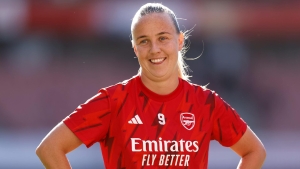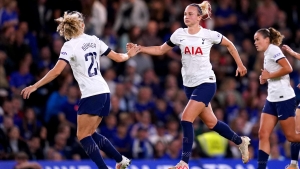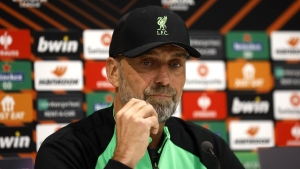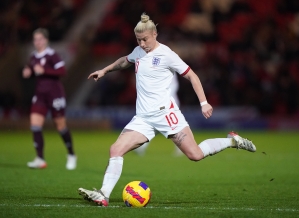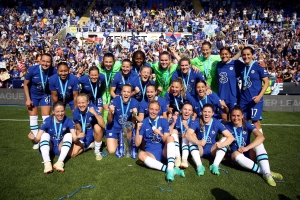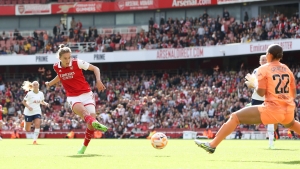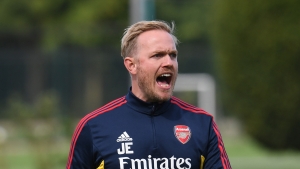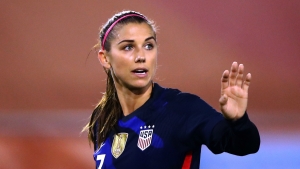While Alan Smith accepts Liverpool have every right to be hurt by the VAR error which cost them in Saturday's loss to Tottenham, he thinks Jurgen Klopp's team have no choice but to move on.
PGMOL, the body responsible for match officials in English football, admitted a "significant human error" was committed when the decision to disallow Luis Diaz's first-half strike – which was flagged offside – was not overturned.
The audio recording of the decision-making process surrounding the incident was made public on Tuesday, revealing VAR Darren England misunderstood the nature of the on-field decision when clearing the check.
Diaz's wrongly disallowed effort occurred when the game was goalless, with Liverpool down to 10 men following Curtis Jones' straight red card.
Diogo Jota was also sent off in the second half before Joel Matip's stoppage-time own goal handed Spurs a dramatic 2-1 victory, maintaining their flying start to the Premier League season.
Liverpool subsequently said the "sporting integrity" of the game had been "undermined" in a statement, and boss Klopp made further headlines on Wednesday.
Speaking at a press conference ahead of Liverpool's Europa League fixture against Union SG, Klopp called for the Spurs game to be replayed, labelling the situation "unprecedented".
While Arsenal great Smith has sympathy for Liverpool, he maintains the Reds have no option but to accept they were wronged.
Speaking to Stats Perform at the Legends of Football event, in aid of Nordoff Robbins Music Therapy, Smith said: "I was amazed when they played on and the offside was upheld.
"It was a lack of communication, big time.
"I can't understand how that happened, but it's not great because it casts a shadow over the game, over VAR especially, and Liverpool are clearly very upset.
"You can't blame them, but I think you've just got to suck it up and carry on really. It's done. It's done now."
The incident has sparked further debate about the impact and implementation of VAR, but former Arsenal vice-chairman David Dein says the technology will become more effective as time goes on, calling for supporters to "stick with it".
"Well, it comes down to two words, human error, and that's going to happen," Dein said. "People have got to understand.
"I'm a great supporter of VAR. Before VAR came in, the referees were making one game-changing error every three games. That's been reduced dramatically.
"You'll see as the years go by. It's still in its infancy. It only came in the World Cup in Russia in 2018. That was when VAR was really introduced.
"It's going to get better and more efficient as time goes on. I'm a great supporter. You've got to stick with it."
Arsenal Women's manager Jonas Eidevall was also speaking at the event, and he outlined his belief that semi-automatic offside technology – which is used in UEFA competitions – should be adopted by PGMOL.
"With VAR, as long as there is a human element to it, there can always be human errors," Eidevall said.
"If you do the semi-automatic offside technology, you don't really have a human element to that and you get less errors. So I think that's a good example. Goal-line technology is another one.
"The referees are also going to get better, over time, at working with a system like VAR. That's also very obvious and they will also learn things every season. They want to get things right."
Meanwhile, VAR – and goal-line technology – was a hot topic across the opening weekend of the Women's Super League season, with officials failing to award Guro Reiten a goal despite the ball clearly crossing the line in Chelsea's 2-1 win over Tottenham.
Asked if he expected VAR to grace the league soon, Eidevall said: "Yes, I do. I think that's where the development is heading. I don't know if that's next season or the season after.
"I think when we do, if we implement it, it has to be the full version.
"What I don't want to see in the women's game is for them to implement a cheaper version of VAR with less camera angles. That makes it really difficult for the referees to see the situations."























